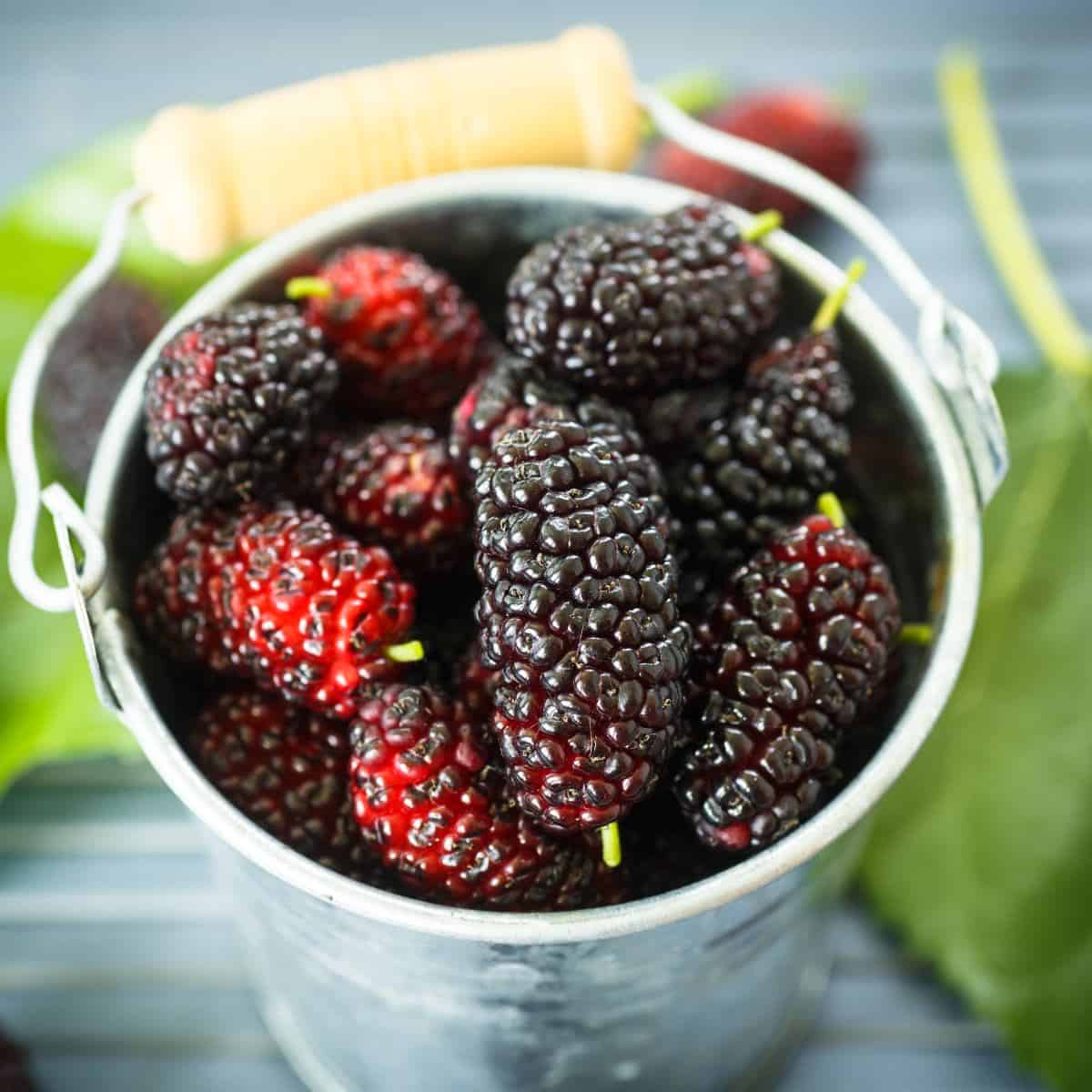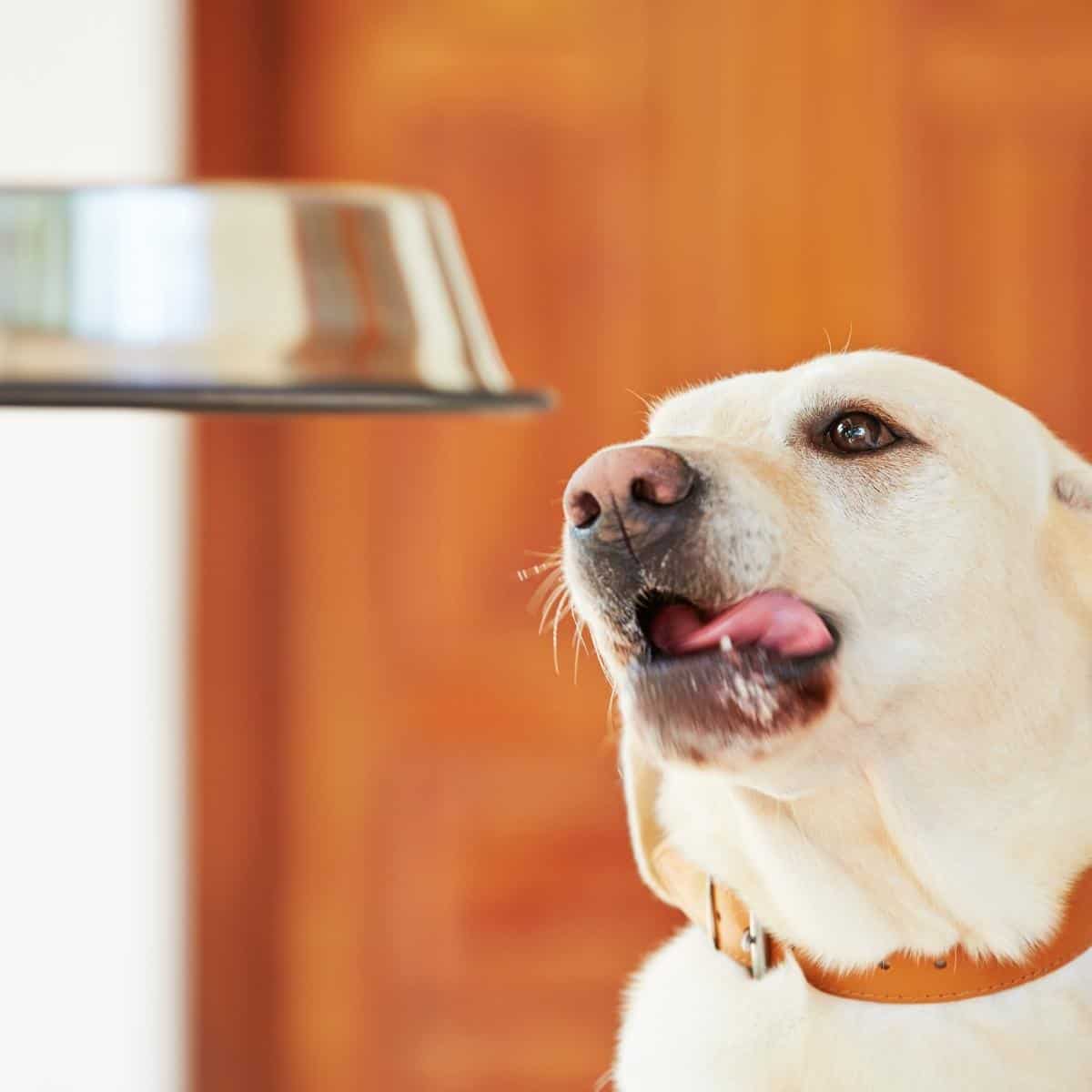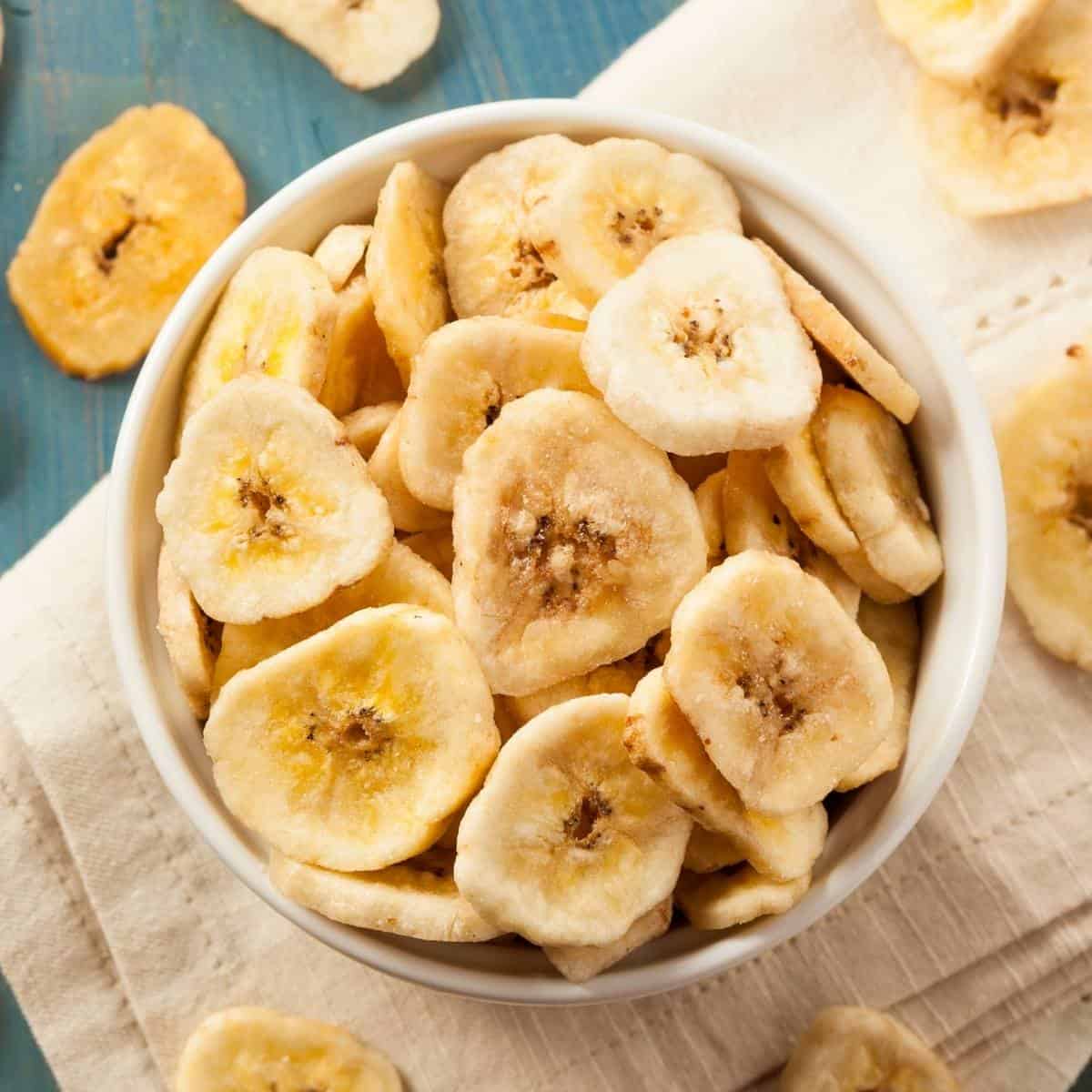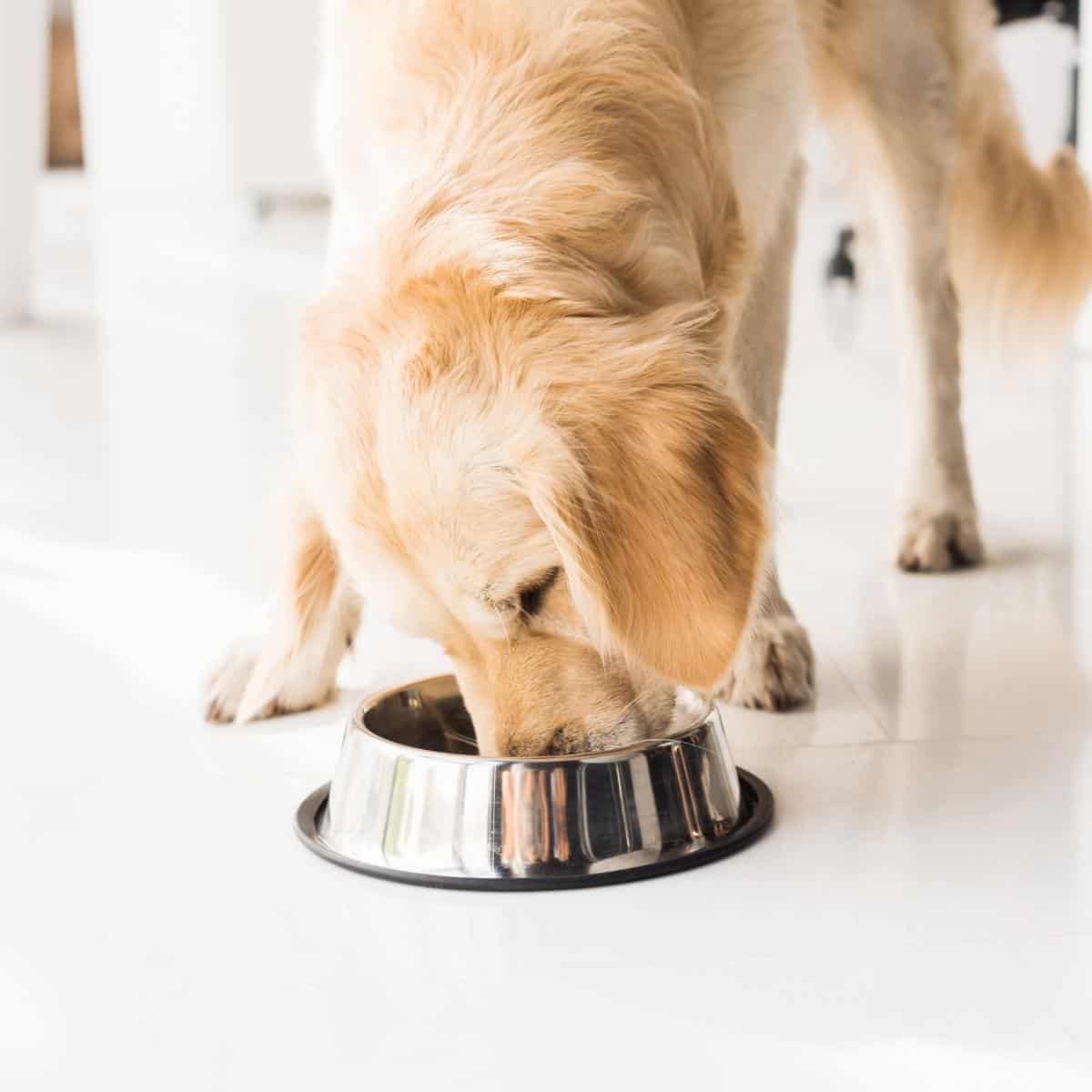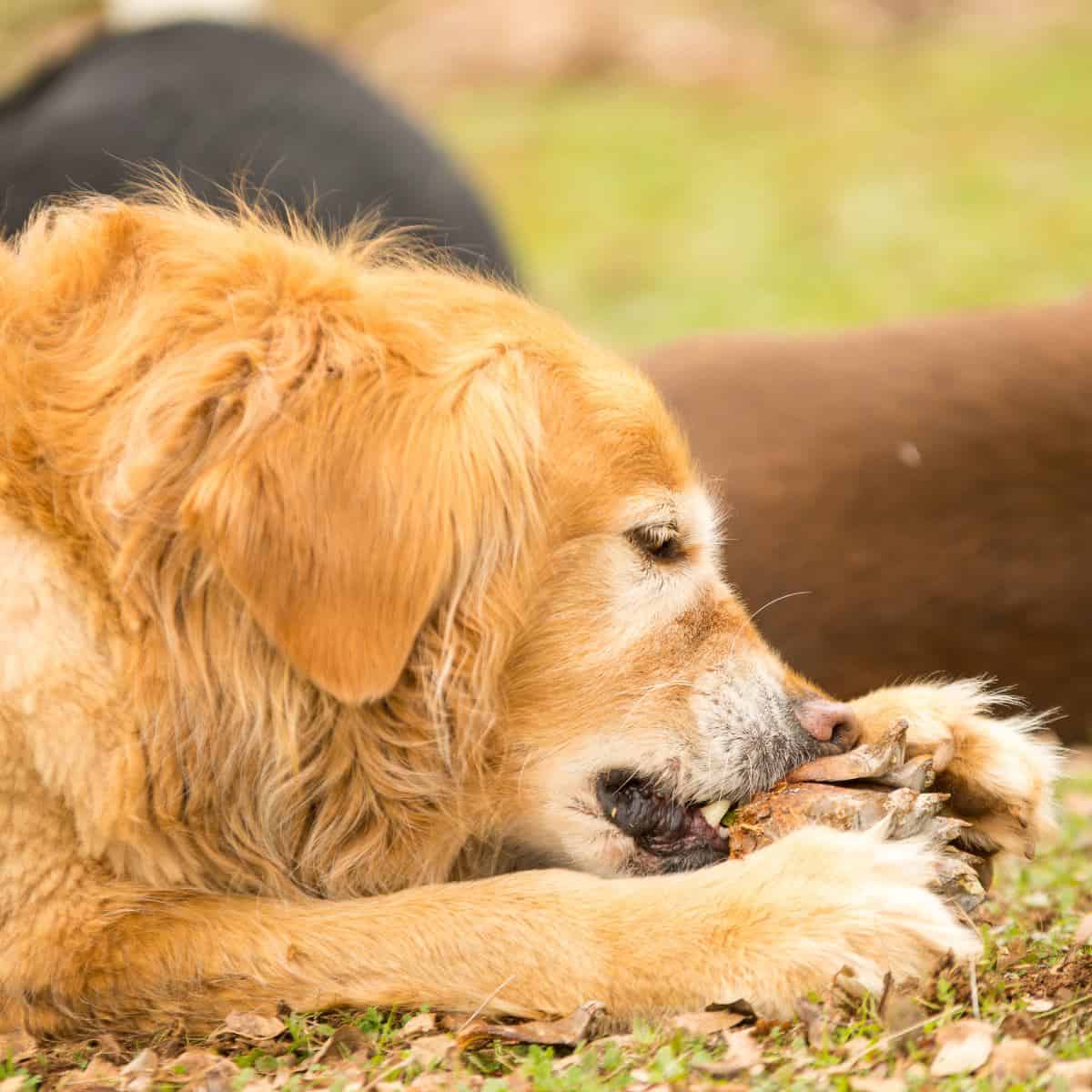Can My Dog Eat Black Olives?
Olives are tasty, nutritionally packed Mediterranean fruits that offer many fantastic health benefits for humans, including antioxidants and healthy fats. While olives are a great snack for us to reach for, do they pack the same nutritional punch for our dogs?

Though it may not seem like it, olives are small fruits. They grow on olive trees and belong to the same group of fruits like acai, mangoes, cherries, peaches, almonds, and pistachios, known as drupes.
Olives are native to Asia Minor, but they are now cultivated in every country in the Mediterranean, as well as Australia, New Zealand, North and South America, and South Africa.
There are around 2000 different varieties of olives, but the most common are green and black olives. Green olives are plucked from the tree before they’re ripe, while black olives are left to reach their peak ripeness before they’re picked.
With so many different varieties of olives, you may be wondering whether they are all dog friendly. Read on to learn whether black olives or other varieties are good for dogs, as well as the best way to incorporate them into your dog’s diet.
Are Olives Okay for a Dog Snack?
Olives don’t make the best snack for your dog due in part to their high fat and salt content. With that said, all olives, including black olives, are non-toxic and safe for your dog to consume in moderation, as long as you remove the pits.
While dogs can’t enjoy as many health benefits from olives as we can, when consumed in moderation, olives still offer a few nutritional benefits for your dog.
Eating a few olives as a snack can provide your dog with vitamins A, E, and K, as well as a variety of other nutrients like potassium, zinc, and calcium.
The monounsaturated fats can also help reduce inflammation in your pup, and many pet parents turn to olive oil to improve their dog’s skin and coat.
With that said, olive pits can pose a choking hazard and can potentially block off your dog’s airways or lodge in their intestinal tract, so only pitted olives are safe for your dog to consume as a snack.
How Many Olives Can Dogs Eat?
While a rogue olive that fell off your dinner plate or a few olives as a treat once in a while is safe for your dog, consuming too many olives can pose a health risk.
Olives are high in sodium, especially ones that are canned or pickled. Too much sodium can be toxic for dogs, leading to vomiting, diarrhea, lethargy, and excessive thirst. In extreme cases, sodium poisoning can also cause tremors, seizures, coma, and even death.
Even black olives which are lower in sodium than other varieties should be consumed in moderation. One black olive contains 32 milligrams of sodium, and your dog only requires 13.3 milligrams of sodium every day.
All olives can lead to high blood pressure and a higher risk of long-term heart disease.
Olives are also high in fat content. While the fats may be “healthy,” too much fat consumption can lead to weight gain in your pup and a higher risk of pancreatitis.
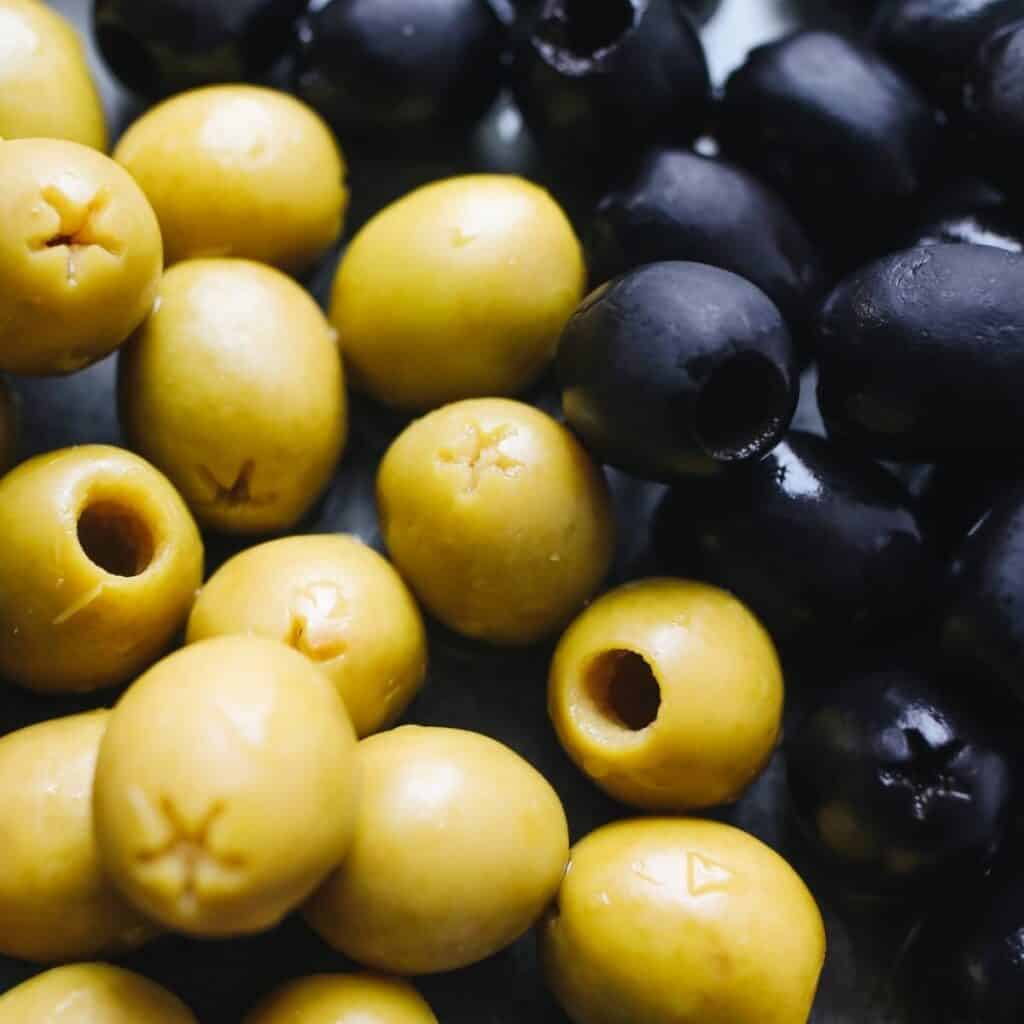
Can Dogs Eat Olives from a Jar with Brine?
You should avoid feeding your dog olives in a jar that has been soaked in brine. Olives on their own are high in sodium, especially green olives which come in jars, and the brine just increases their sodium levels even further.
Black olives that typically come in a can are also soaked in brine and can be harmful to your dog’s health.
High levels of sodium can lead to dangerous dehydration, vomiting, diarrhea, and seizures in your dog.
What’s the Best Type of Olives to Feed to Dogs?
The best type of olive to feed your dog is a plain, pitted, unsalted olive. While all varieties of olives are technically safe for your dog to consume, plain black olives will be the safest choice, as they contain the least amount of sodium out of all the olive varieties.
Never feed your dog olives that have been dressed or marinated in any kind of seasoning or oil, like garlic or spices.
Garlic, as well as other members of the allium family like onions, can cause gastrointestinal issues, abdominal pain, and anemia in your dog. Spices can also irritate your dog’s digestive system, especially hot spices like peppers and chilis and dishes like tamales that contain all of these ingredients.
You should also avoid giving any kind of stuffed olive to your dog. In many cases, the filling for olives contains ingredients that are toxic or hard to digest by your dog, like blue cheese, garlic, or almonds.
Finally, never give your dog an olive that has been soaking in a martini or other alcoholic drink. Alcohol is extremely toxic to dogs, especially small dogs, and can lead to hypoglycemia, lethargy, and hypotension.
Can Dogs Eat Olives from The Tree?
If you have an olive tree, feeding your dog an olive from the tree is fine occasionally. In fact, because those olives are fresh, unseasoned, and contain no preservatives, they can be even better for your dog than store-bought.
If you pick an olive before it’s fully ripe, you’ll be giving your dog a green olive, which is safe, but if you wait until the olive is fully ripened (a black olive), you can reduce the sodium content.
Fresh olives from the tree will always contain a pit, so make sure that you remove them before giving them to your dog.
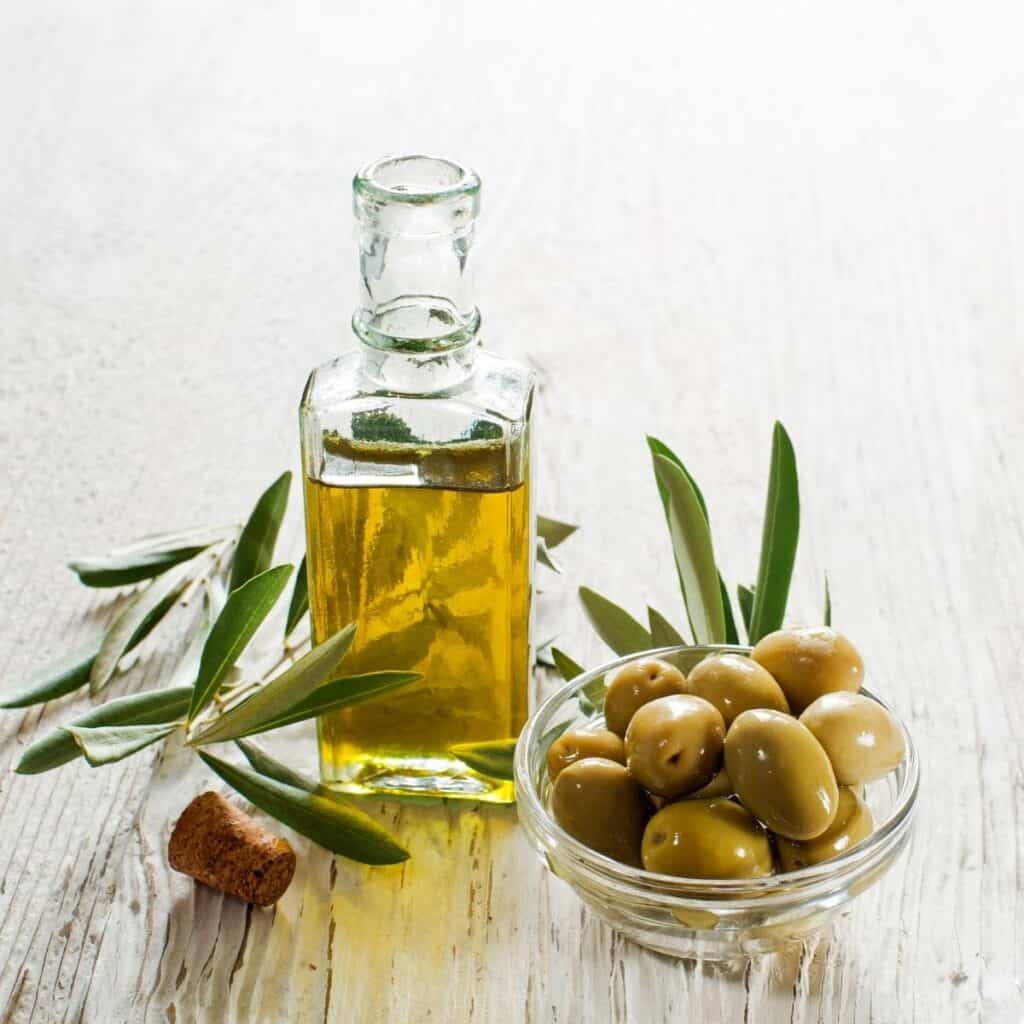
Olives for Canines: The Short Version
All varieties of olives are safe for your dog to consume in small amounts, as long as they are plain, unseasoned, and pitted.
Olives, especially those that have been soaked in brine, contain high levels of sodium, which can be harmful to your dog, so it’s best to only give your dog 1 or 2 olives at a time.
Black olives contain the least amount of sodium, so they are the best choice to feed your dog if you want to add a couple of olives to their diet as a snack.
